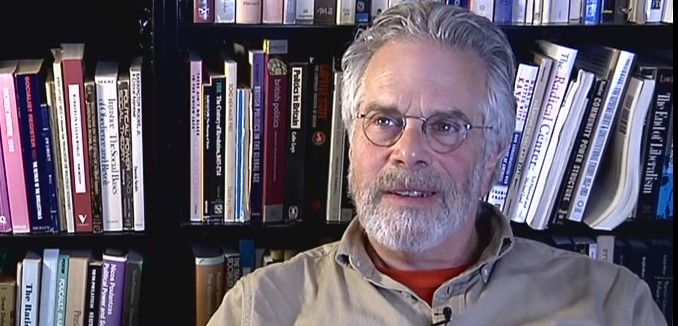Students and faculty at Oberlin College are “working actively to deal with this unprecedented situation” created by the controversial social media postings of Prof. Joy Karega, a professor at the school wrote Monday in The Forward.
Karega was broadly condemned for making and promoting anti-Semitic statements in her Facebook posts, which were first revealed by The Tower last month.
Marc Blecher, a professor of political science at Oberlin, wrote to respond to another Forward op-ed written by a Chicago-area high school teacher who said that he would no longer recommend to his Jewish students that they attend Oberlin due to its underwhelming response to the controversy. Blecher wrote that many of his faculty colleagues agreed with Soffer’s assessment of the Karega affair, but differed with his conclusion that Jewish students shouldn’t attend Oberlin.
Blecher agreed that “Professor Karega’s posts were unambiguously anti-Semitic,” and that “the main problem in her case lies even more in the fact that her assertions are simply false and for that reason are unworthy of Oberlin.” After consultations with students and faculty, Blecher wrote that he believed the school was “now working actively to deal with this unprecedented situation.”
He also acknowledged that those ongoing efforts will take some time. For example, Blecher stated that Oberlin’s Multicultural Resource Center “has been silent on anti-Semitism,” but wrote that this “is finally going to change.” He closed by hoping that Oberlin’s “firm response” to Karega would allow the school to “deal much better with the small number of instances where, as on other campuses, the rhetoric and politics have become overheated.”
Karega herself linked to Blecher’s article on her Facebook page alongside a disapproving comment. She subsequently removed that post, and put up a new post stating that she would now be “taking a Facebook sabbatical for a while.” Karega wrote on Facebook earlier this month that on advice her legal counsel, she would “no longer be making any statements concerning my situation at Oberlin.”
Abraham Socher, an associate professor of religion and director of Oberlin’s Jewish Studies program, also criticized Karega’s postings in the college’s newspaper two weeks ago:
To be clear, I do not contest Professor Karega-Mason’s right to say whatever she wants on Facebook or anywhere else, her own skepticism about freedom of speech notwithstanding. But anyone who is tempted to think that what she has said was not anti-Semitic or can be creatively contextualized away ought to think about what would constitute anti-Semitic speech, and whether they would apply such alibis or restrictive, ahistorical definitions to any other form of hate speech. Perhaps a simpler way to put it is this: the Rothschild meme seems to have originated on neo-Nazi websites. Did it somehow become less repellant when Professor Karega-Mason posted it on her Facebook page? And, if so, why?…
In my 16 years at Oberlin College, I have never publicly criticized a colleague. But it seems to me that to look quickly away from Professor Karega-Mason’s posts without explaining exactly what is wrong with them would be to confirm that Oberlin College is indifferent to — or at least very squeamish about — anti-Semitism. I would prefer to think otherwise.
Karega also came under sharp criticism from the chairman of Oberlin’s Board of Trustees, who called Karega’s postings “anti-Semitic and abhorrent” and wrote that “these grave issues must be considered expeditiously.”
[Photo: Oberlin College / YouTube ]




